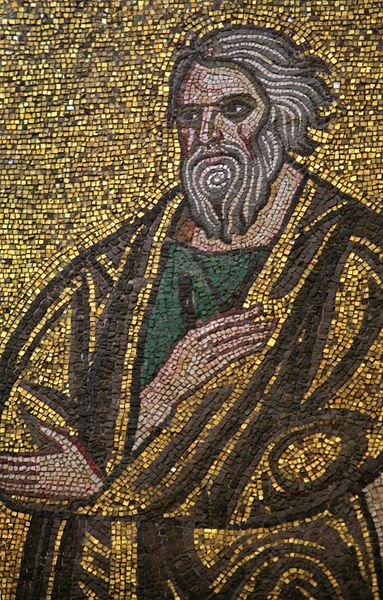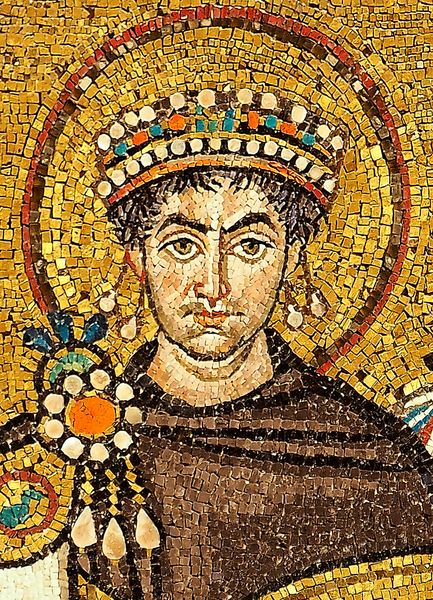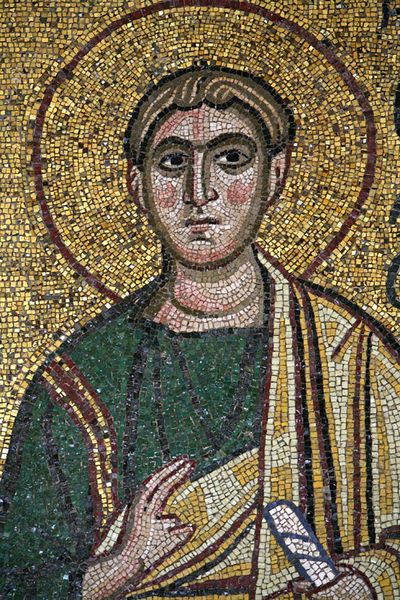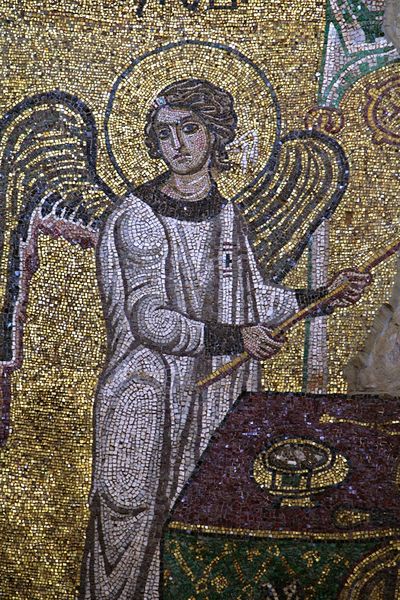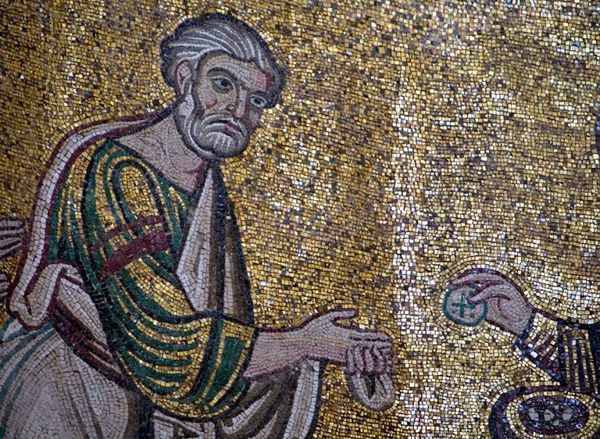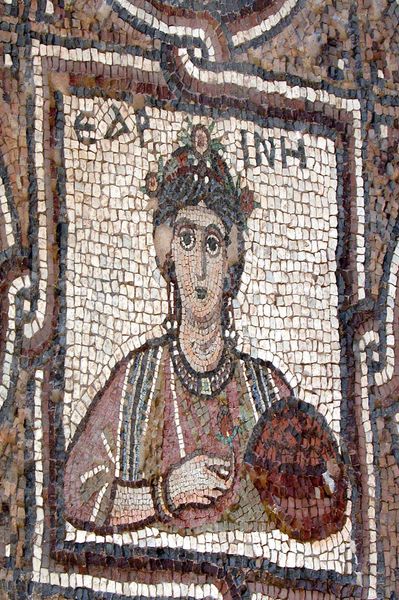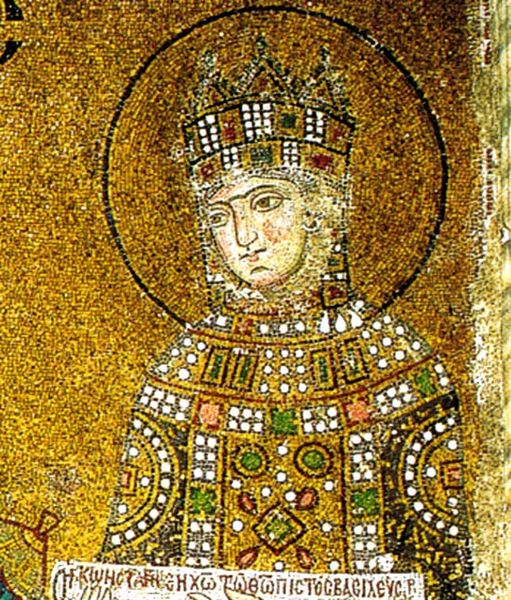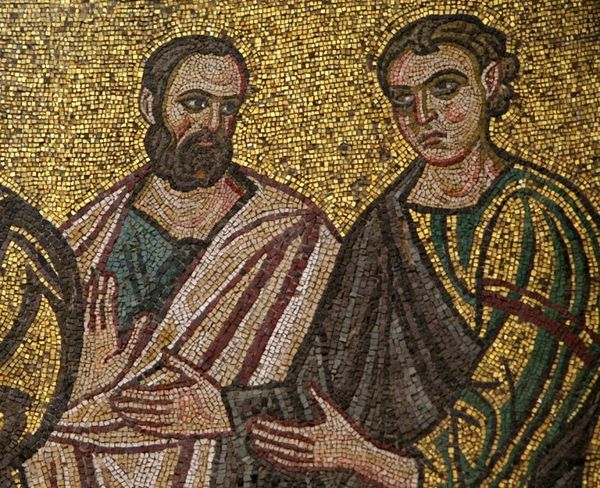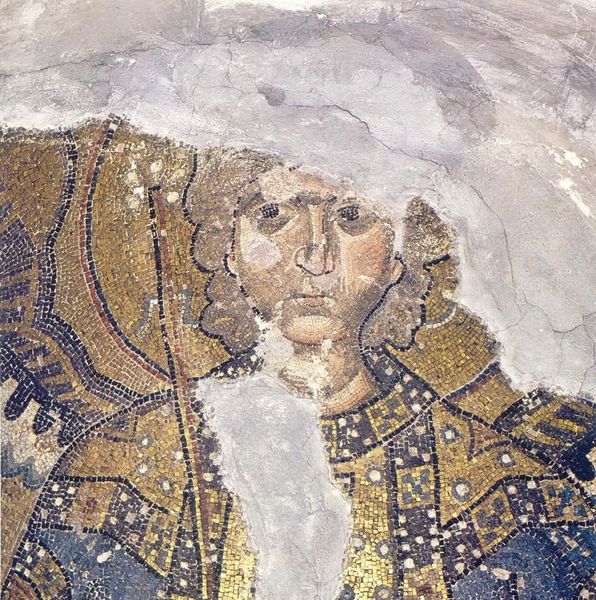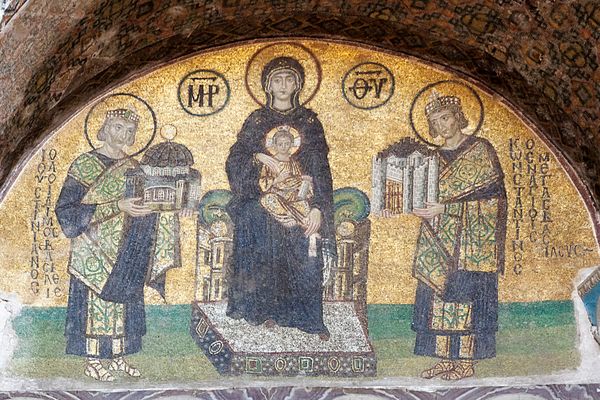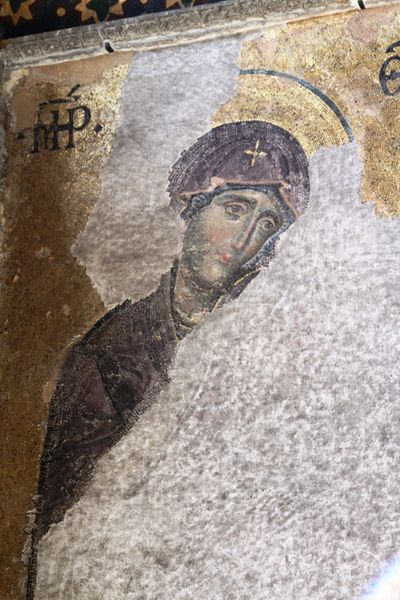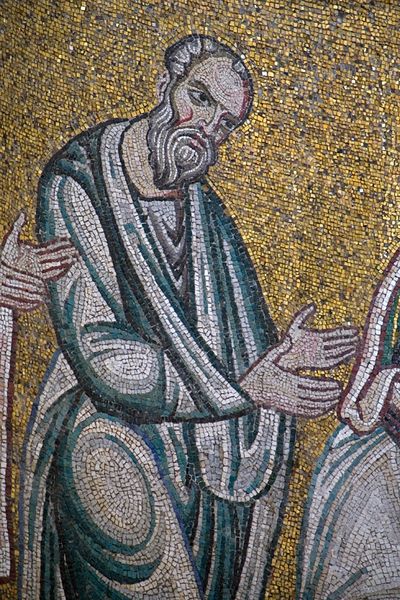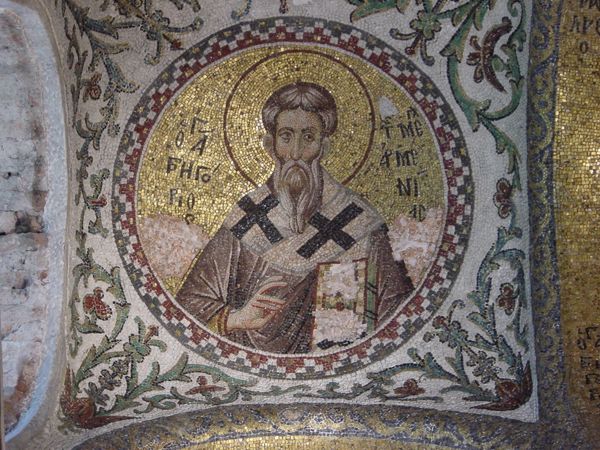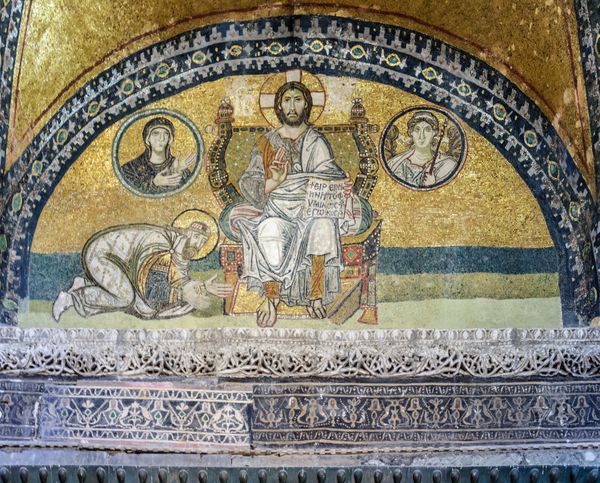
Emperor Constantine I, Presenting a Model of the City to the Blessed Virgin Mary 1000
0:00
0:00
byzantinemosaics
Hagia Sophia, Istanbul, Turkey
mosaic
#
portrait
#
mosaic
#
byzantine-art
#
medieval
#
figuration
#
history-painting
Copyright: Public domain
Editor: Here we have the mosaic "Emperor Constantine I, Presenting a Model of the City to the Blessed Virgin Mary," dating back to around the year 1000, and adorning the Hagia Sophia in Istanbul. I'm struck by the symbolic weight of the offering and how it’s depicted; what significance do you find in the imagery here? Curator: The act of offering, especially of a city, is saturated with meaning. The image evokes a sense of both temporal and spiritual power. Note how Constantine, though an emperor, presents the city in humility. He acknowledges a higher authority. The city model itself is more than just stone and mortar; it embodies governance, societal structure, and, of course, its people. What kind of visual associations does the halo surrounding his head conjure? Editor: It suggests divinity, or at least a blessed status. And it positions Constantine within this sacred narrative. How did this placement impact the perceptions of viewers at the time? Curator: Immensely. It reinforced the Byzantine emperor's role as divinely appointed and legitimized his authority. Visuals served as potent propaganda. The cultural memory woven into this mosaic speaks to the enduring power of religious imagery and its political function. Is it also interesting how history painting may also serve portraiture? Editor: Definitely! The visual elements tell us volumes about both the individual and the empire’s self-image. I didn't realize how deeply intertwined religious art could be with the political agenda. Curator: Indeed. The city isn't just offered to the Virgin; it's symbolically entrusted to a power that transcends earthly rule. Reflect on what this image conveys about Byzantium’s cultural values, the relationship between church and state, and the visual language employed to solidify power. It’s a fascinating study of the layered meanings within a seemingly simple image.
Comments
No comments
Be the first to comment and join the conversation on the ultimate creative platform.
